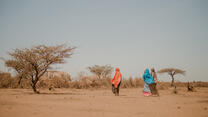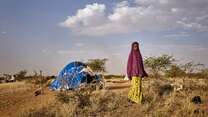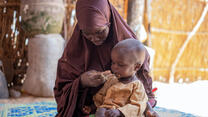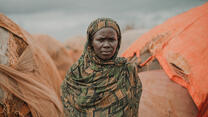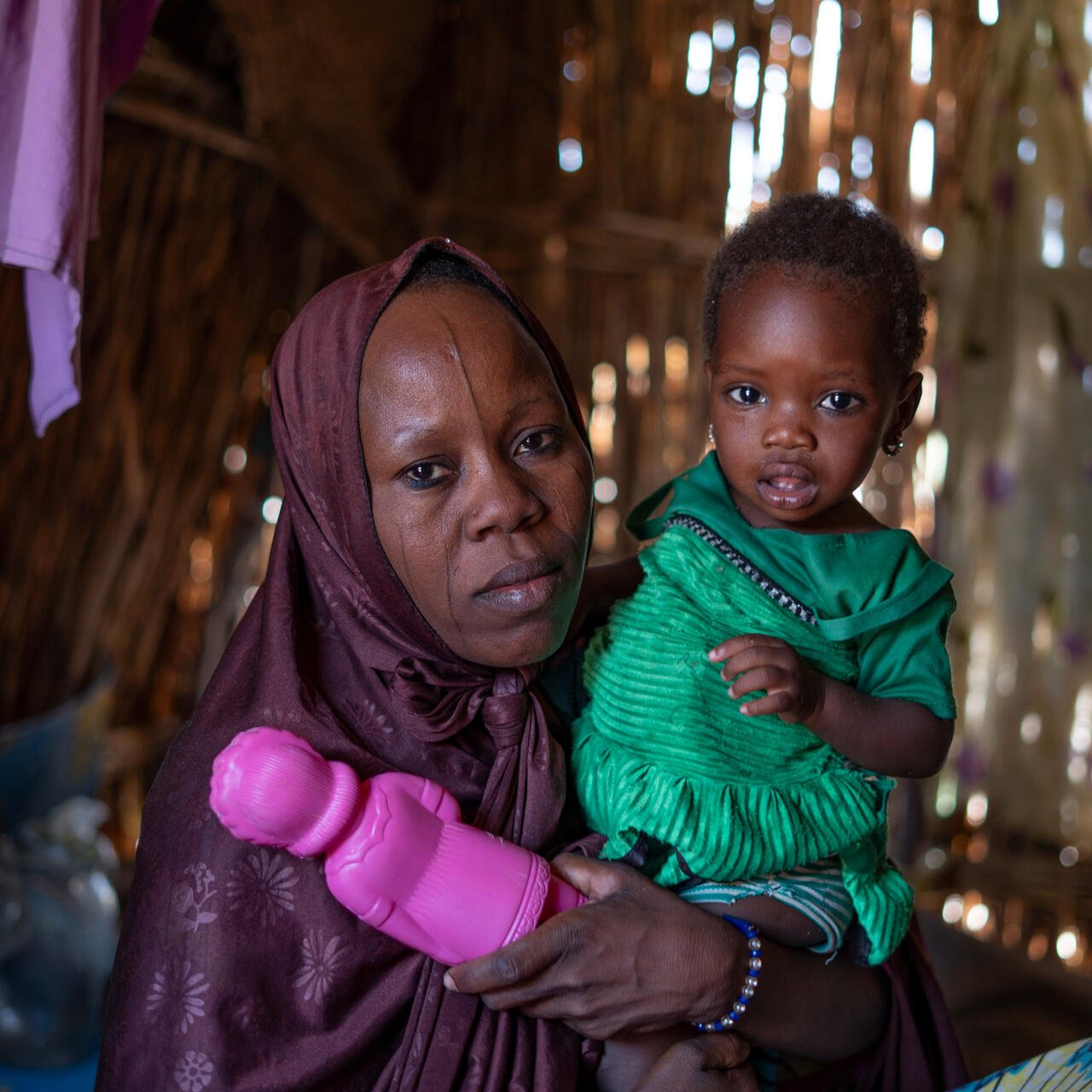
The Central Sahel region of Africa, which includes Burkina Faso, Mali and Niger, is facing an unprecedented humanitarian crisis. Over 16 million people need assistance and protection, marking a 172 percent increase from 2016. The number of internally displaced people has surged by over 2,400 percent since 2014 and food insecurity has risen by 532 percent.
Despite making up just 0.9 percent of the global population, the Central Sahel accounts for 5 percent of global humanitarian needs.
A new report from the International Rescue Committee (IRC) indicates that the combined impacts of climate change and armed conflict are causing a significant increase in humanitarian need, displacement and food insecurity.
“The humanitarian impacts we are seeing in Mali, Burkina Faso and Niger are not a coincidence, but a result of historical and current political decisions that have left communities unprepared to face the impacts of climate change,” explains Modou Diaw, the IRC’s regional vice president for West Africa.
Read on to learn more about this unprecedented humanitarian crisis.
How does the Central Sahel’s past affect its future?
The Central Sahel’s ongoing humanitarian crisis is not evenly spread. Prioritization of certain regions has left peripheral areas of Burkina Faso, Mali and Niger particularly vulnerable to the impacts of armed conflict and climate change.
The lasting effects of colonialism
From the 1890s to 1960, Burkina Faso, Mali and Niger were subject to colonialism. During this time period, the colonial government divided the countries into “utile,” or useful, areas and “inutile,” or useless, areas.
Investment and resources were directed towards the "utile" parts of the region, while the "inutile" areas suffered from a lack of economic growth and were subject to new regulations and border controls that disrupted a tradition of migration and trade.
This economic and political marginalization of peripheral parts of Burkina Faso, Mali and Niger persists to this day.
Inequality after independence
Following their independence in 1960, Burkina Faso, Mali and Niger faced difficulties integrating their marginalized regions.
The new governments focused on maintaining control of peripheral regions through security measures. They also extracted resources and tax revenue from rural regions without promoting economic growth.
Instead of promoting economic diversification or fostering development in the marginalized periphery, Central Sahel governments persisted in centralizing power and resources within their capitals well into the 21st century. This approach has led to fierce political tensions.
There have been 18 successful coups in the Central Sahel since 1960—an average of one every 3.5 years. These coups have not only fractured economic progress and social unity but have also compelled newly-formed governments to adopt 'coup-proofing' measures, directing substantial resources towards military and defense, often to the detriment of public infrastructure and welfare.
Editor’s note: In light of the 2023 instability in Niger, the IRC stands with other humanitarian organizations in calling for all stakeholders to do their utmost to minimize human suffering and to ensure that assistance can reach those in need, regardless of political situation or decisions.
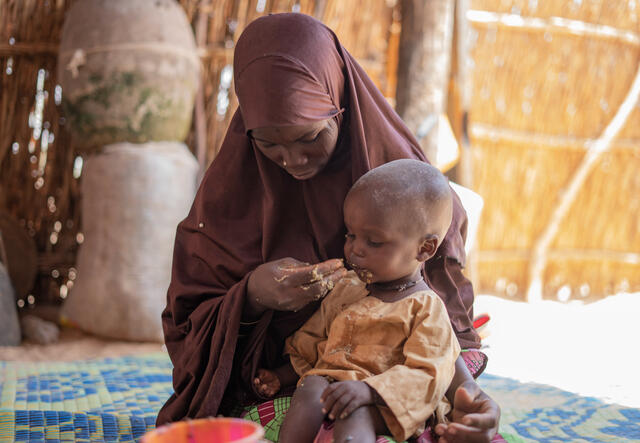
How are conflict and climate change interconnected
A long political legacy has left peripheral areas in Burkina Faso, Mali and Niger economically and politically marginalized. As a result, residents suffer from a lack of economic opportunities and political inclusion, which drives grievances against their respective central governments. The exclusion also contributes to a reliance on industries that are highly vulnerable to the effects of climate change, such as farming and herding.
Ultimately, extended marginalization and the impacts of climate change increase conflict risk in the Central Sahel.
When conflict erupts, it worsens poverty, increases displacement and leaves those on the periphery increasingly vulnerable to the effects of climate change, creating a dangerous self-enforcing cycle.
Climate change drives competition over limited resources
Climate shocks are becoming increasingly common in the Central Sahel, where 78 percent of the labor force depends on agriculture and herding. Temperatures are climbing at a rate 1.5 times faster than in other parts of the world, with projections indicating a rise of 2- 4.3°C by 2080. Already, Niger loses 100,000 to 120,000 hectares of arable land to soil erosion and desertification each year.
Climate shocks displace people and destroy their livelihoods. They also increase competition for natural resources, requiring farmers and herders to travel further for pasture and water.
Learn more about climate change in the Central Sahel here.
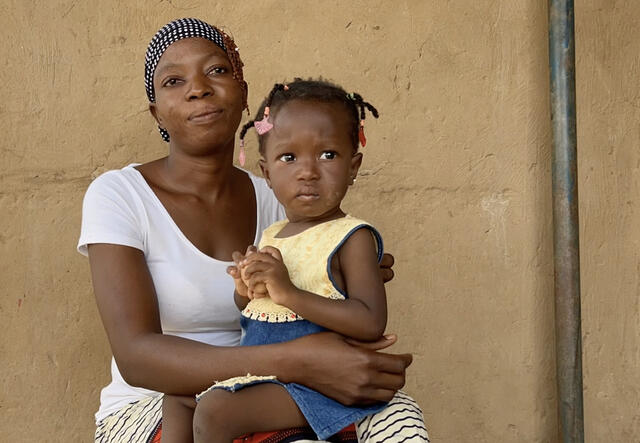
Armed conflict exacerbates the impacts of climate change
The Central Sahel's conditions have given rise to 41 nonstate armed groups (NSAGs) in Mali alone. Some have ties to Al Qaeda and compete with each other and the government to control populations, territories and resources.
The ongoing conflicts intensify the challenges of poverty and food insecurity. Violence uproots people from their homes and prevents them from tending to their crops or animals. It also damages water, power and other forms of infrastructure that are crucial for managing the impacts of climate change.
“I witnessed the gravity of the situation in Burkina Faso firsthand,” says Diaw. “The food security of the population is unbearable and requires immediate action from all actors who have the capacity to make a difference for these people in dire need of food access.”
Conflict also discourages governments and businesses from investing in vulnerable regions. International donors are largely unwilling to fund programs that improve climate adaptation in fragile and conflict-affected regions.
The region's long history of marginalization has resulted in poverty, grievances and reliance on climate-vulnerable industry. As climate shocks intensify, conflict outbreaks become more frequent, exacerbating the humanitarian crisis.
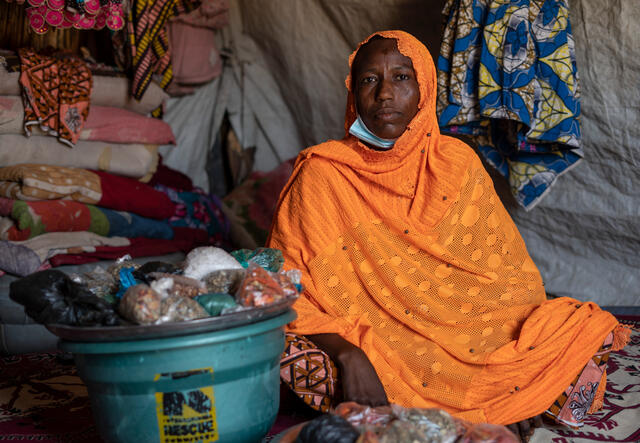
How can we break the cycle of crisis in the Central Sahel?
The international community must address immediate humanitarian needs, break the connection between climate change and conflict and fund climate adaptation programs.
“This compound crisis requires attention both to immediate needs and efforts to break the cycle,” explains Diaw. “It is crucial to invest in humanitarian access, geared especially to the specific needs of women and girls. Global climate finance with a focus on matching adaptation to mitigation efforts must be delivered through a range of partners — such as the United Nations and nongovernmental organizations — to account for low state capacity.”
Address immediate humanitarian needs
The IRC and other humanitarian organizations are working to address needs in the Sahel, but various constraints limit access and aid delivery. Restrictions from NSAGs and authorities, safety threats and logistical issues impede humanitarian reach and capacity.
Humanitarian access must be improved so that organizations like the IRC can continue to deliver critical assistance. In Northern Mali, the IRC has built water and wood provision points to minimize the distance that women and girls have to travel, reducing their exposure to gender-based violence and exploitation.
If humanitarians can reach those in need, they can address the most urgent needs during a crisis.
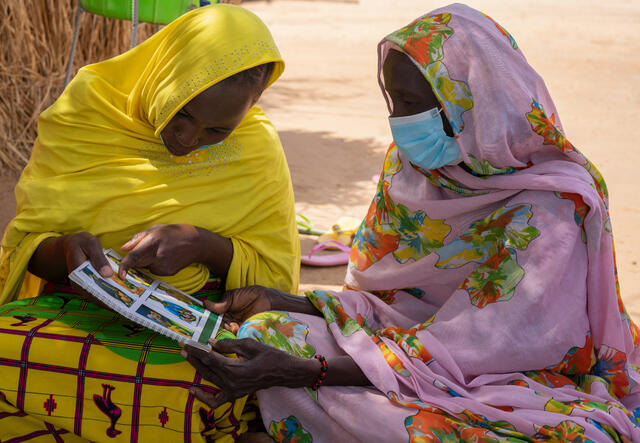
Break the connection between climate change and conflict
Action must be taken to mitigate the economic impacts of climate change in the Central Sahel. The IRC assists in developing water infrastructure to reduce the risk of conflict arising from competition over water access.
More programs and support are necessary to decrease conflict risk. Ensuring humanitarian access is crucial for program implementation.
In addition, providing economic support and opportunity is crucial to curbing conflict. A recent United Nations Development Program study indicated that the primary reason people joined NSAGs was “hope for employment.”
Fund climate change adaptation programs
Despite facing an unprecedented, and growing humanitarian crisis, Central Sahel countries receive less than 50 percent of the per capita funding that countries who are not experiencing conflict receive.
“We must raise awareness of the harsh conditions faced by millions of people in the Central Sahel,” says Hannah Gibbin, the deputy regional director for West Africa at the IRC. “Funds to address the dire situation in the region which has been driven by years of insecurity and conflict must be increased.”
How can I help?
To find out more about the cycle of crisis in the Central Sahel, read the IRC’s report, Watchlist Insight: Climate and humanitarian crisis in the Central Sahel.
The IRC provides humanitarian support in Burkina Faso, Mali, Niger and more than 40 crisis-affected countries around the world.
Donate now to support our work.
* Last name excluded for privacy
